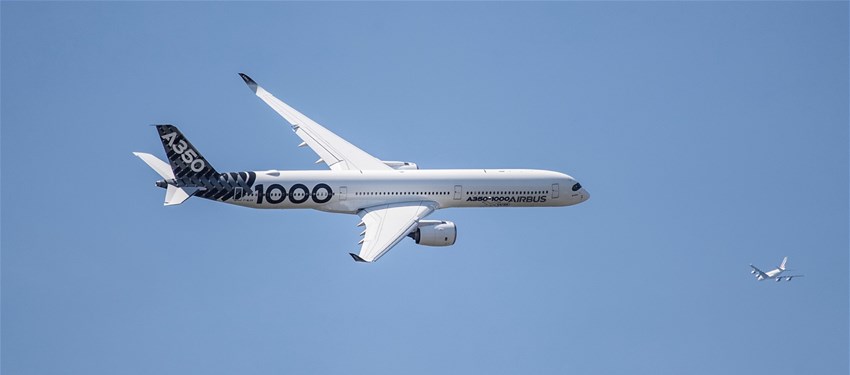“Ana’s research was an eye opener for us”
How can machining processes be made more efficient? Ana Bonilla investigated this issue as an externally employed doctoral student at GKN Aerospace in Trollhättan. “Ana based her research on data from our production process. The results were an eye opener for us. We gained a better understanding of how our process works and how it can be improved,” says Robert Reimers, R&D manager in production technology at GKN Aerospace.

Ana Bonilla's research at GKN Aerospace contributes to developing the company's production of aircraft engine components. They are used in the Airbus A350, among other places. Photo: GKN Aerospace
Machining processes, such as drilling, turning and milling, are some of the most common industrial manufacturing processes. This is also the case at GKN Aerospace. Ana’s research focused on investigating how cutting tools can be programmed and how their use can be optimised to increase productivity and reduce environmental impacts.
“To stay on the cutting edge of technology, our research and development work needs to have a broad focus. In that respect, we benefit greatly from research conducted by doctoral students and their contributions in building our knowledge base,” says Robert Reimers.
When Ana started her doctoral studies in 2013, she was already employed by the company.
“My motivation has been to contribute to streamlining cutting processes. We showed that this can both save time and resources and create improved products,” says Ana, now R&D team and project leader in Automation and Composite Technologies at GKN Aerospace.
In her research work, she had support from about a hundred colleagues at GKN’s Global Technology Centre.
“I was well received by the team, and I learned a lot when working with them. They are accustomed to collaborating with doctoral students, and they understand the challenges that may arise along the way. My doctoral studies also provided me with my critical thinking and with procedures for documentation, and I learned to present research to different target groups,” says Ana.
Participating in the Sicomap industrial research school provided Ana with a forum for valuable exchanges with about 15 other doctoral students. Since the research topics within the group were wide-ranging, she also gained insight into what the other students were researching, including welding technology, simulation technology and thermal spraying.
“Through Sicomap, I was given the opportunity to participate in a three-month internship at the University of Kentucky’s Institute of Sustainable Manufacturing. It was stimulating to experience a research environment and organisation completely different from the Production Technology Centre. This experience helped me build a network of contacts that continue to benefit me.”
Today, Ana leads the company’s development work on automating the use of cutting tools in production, a complex and wide-ranging effort that will facilitate improvements to both production flows and the work environment of operators.


